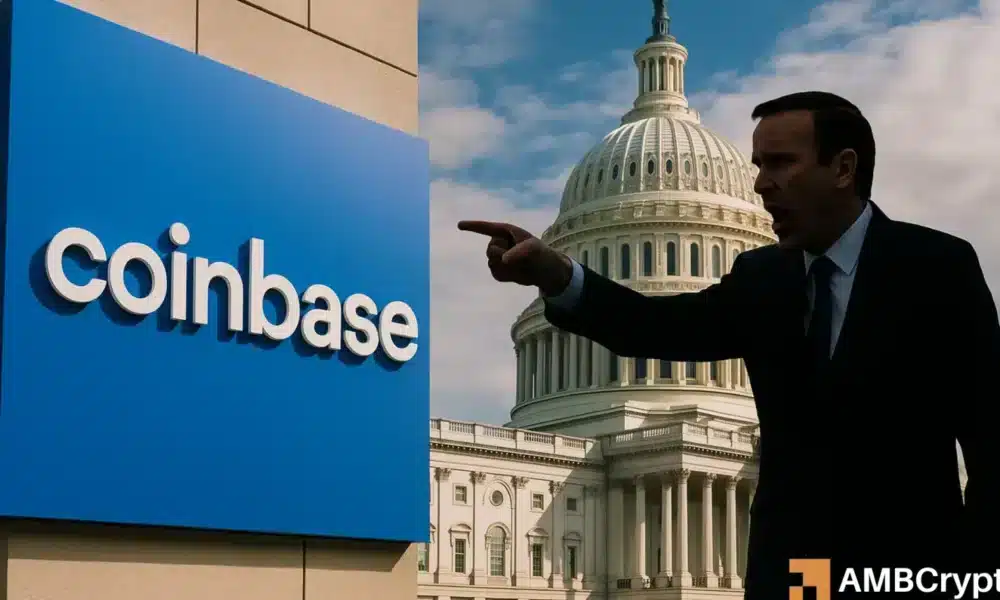Coinbase Under Fire: Senator Murphy’s Accusations and the Crypto Response
Tensions between the cryptocurrency industry and U.S. lawmakers have reached a boiling point, exemplified by the recent accusations from Senator Chris Murphy against Coinbase. The senator alleged that the prominent crypto exchange received political favors from the Trump administration in return for financial support and donations. This heated exchange illustrates the complicated relationship between regulatory bodies and cryptocurrency companies.
Accusations of Political Favoritism
In a post on X, Senator Murphy asserted that Coinbase had benefitted from special regulatory treatment while supporting pro-Trump allies. He specifically mentioned the exchange’s contributions to Trump’s inauguration and intimated that the Securities and Exchange Commission (SEC) dropped its lawsuit against Coinbase as part of a broader pattern of political favoritism. These claims have ignited a fierce debate over the ethics of such political donations and whether they compromise regulatory impartiality.
Coinbase’s Defense and Counterarguments
In response to these allegations, Coinbase’s Chief Legal Officer, Paul Grewal, vehemently rejected Murphy’s claims, urging the senator to “do your homework.” He argued that the real issue lies in the historic regulatory hostility and inconsistency that the crypto sector has faced. Grewal and other executives highlighted that Coinbase’s contributions to political campaigns are part of a long-standing tradition in American politics, spanning multiple administrations.
The Role of Corporate Donations
Coinbase’s Chief Policy Officer, Faryar Shirzad, joined in the defense, emphasizing that corporate donations to presidential inaugurations are not new and that numerous companies have participated in them regardless of political affiliation. He pointed out that the political action committee Fairshake, mentioned in Murphy’s accusations, is non-partisan and has previously supported candidates from both parties. This perspective aims to frame Coinbase’s actions as standard practice rather than favoritism.
Clarifications on Funding and Construction
In response to inquiries about their involvement in funding the National Mall ballroom, Shirzad clarified that Coinbase’s donation was funneled through a nonprofit supporting the U.S. Park Service. He stated that Coinbase had no role in the construction of the project, which involved contributions from multiple companies. This clarification serves to distance the exchange from any perceived wrongdoing regarding the funding of politically connected projects.
Broader Implications and Ideological Divide
The exchange between Murphy and Coinbase illustrates a growing ideological rift regarding crypto’s role in the American financial system. Since the introduction of the GENIUS Act, nearly 100 new digital asset initiatives have emerged, hinting at the rapid evolution of the industry despite regulatory challenges. Critics of Senator Murphy, including attorney John E. Deaton, suggest that the real issue lies within regulatory inconsistencies rather than alleged political bias in the SEC’s actions against Coinbase.
Conclusion: Navigating a Complex Landscape
The conflict between Senator Murphy and Coinbase reflects broader tensions in the evolving landscape of cryptocurrency regulation. As lawmakers grapple with issues surrounding financial influence and innovation, companies like Coinbase face the challenge of maintaining ethical practices while navigating an often adversarial regulatory environment. The incident underscores the need for clear and consistent regulations that foster innovation while protecting public interests in the financial sector.


